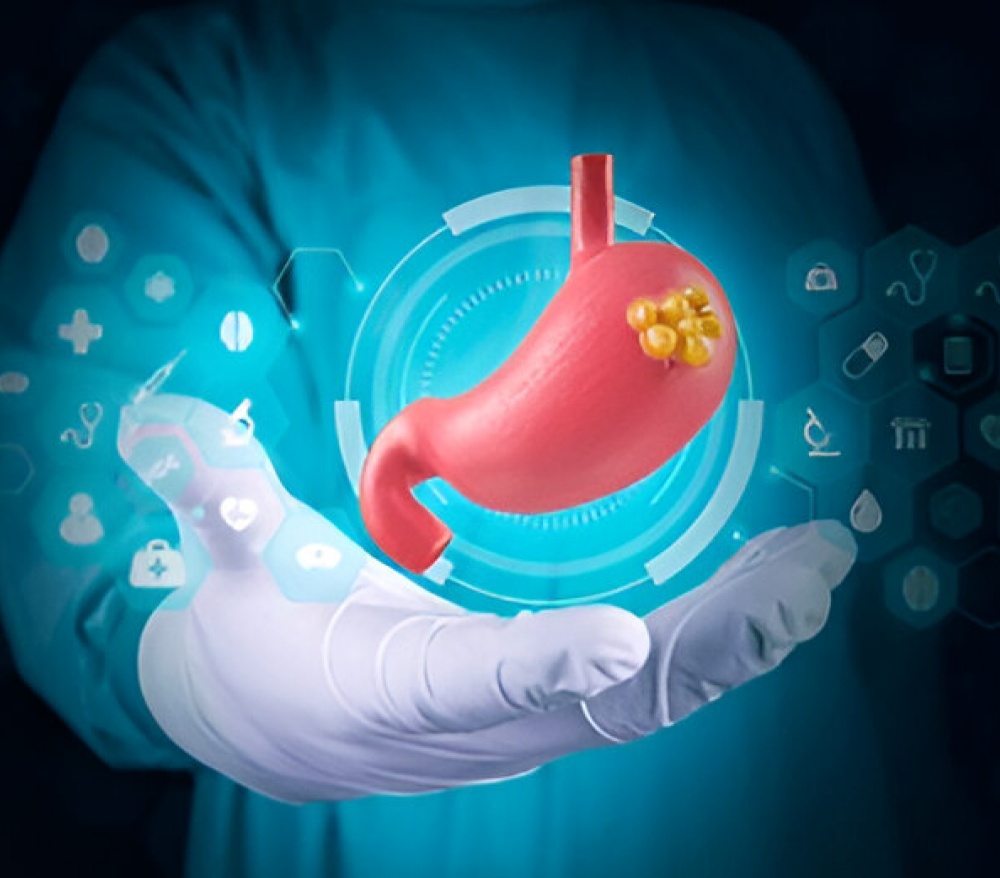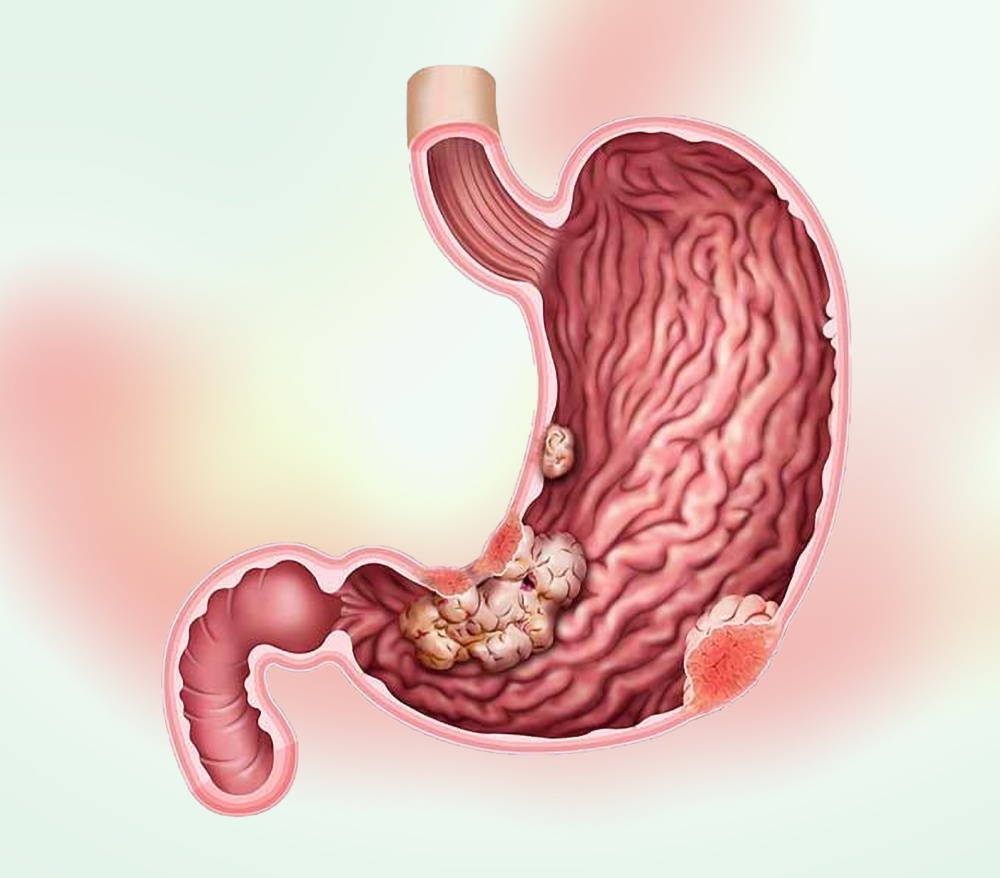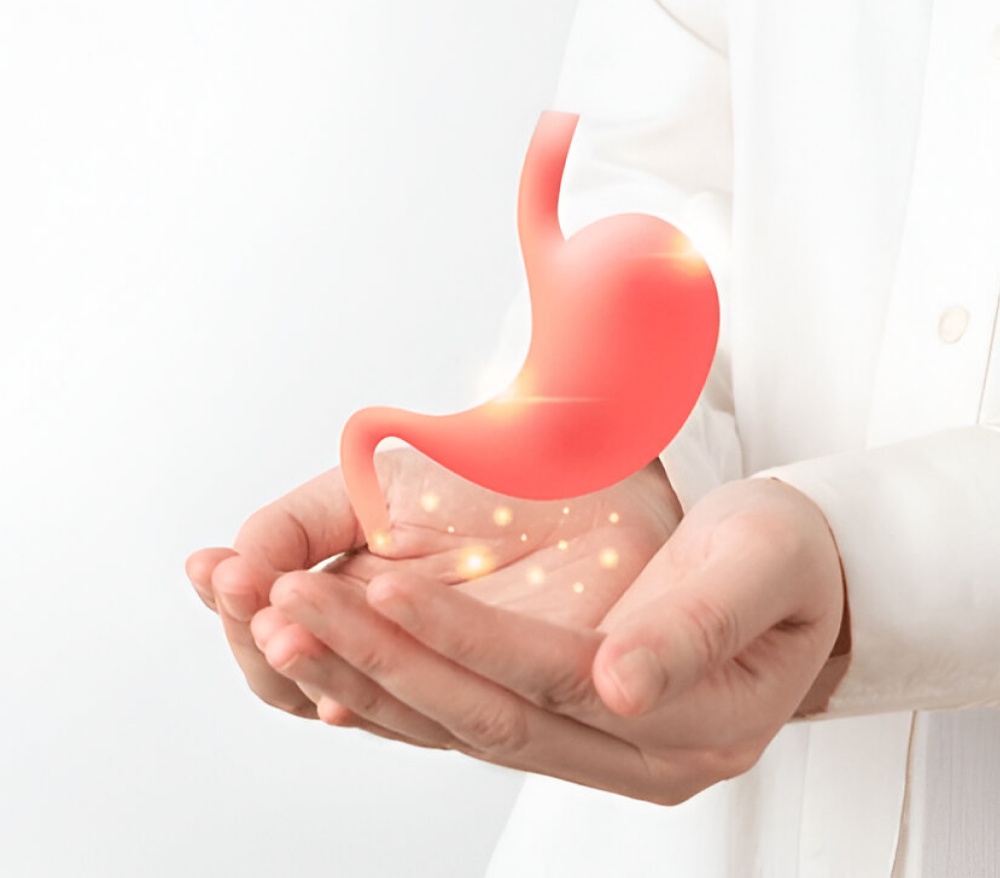Stomach Cancer

What is Stomach Cancer?
Stomach cancer, also known as gastric cancer, is a disease characterized by the abnormal growth of malignant cells in the lining of the stomach. It can occur in any part of the stomach and may spread to nearby lymph nodes and other organs if left untreated.
The stomach is a muscular, sac-like organ located in the upper abdomen. It stores and begins the digestion of food before passing it on to the small intestine. Cancer disrupts this process and can lead to a variety of symptoms.
Causes and Risk Factors
While the exact cause of stomach cancer isn’t always clear, several factors are known to increase risk:
- Helicobacter pylori infection
- High salt, smoked, or nitrate-rich food intake
- Low intake of fruits and vegetables
- Obesity
- Chronic gastritis or gastric ulcers
- Gastroesophageal reflux disease (GERD)
- Smoking and alcohol consumption
- Exposure to radiation or certain chemicals (e.g., in coal or rubber industries)
- Family history of gastric cancer
- Genetic syndromes like Lynch syndrome, FAP, or Li-Fraumeni syndrome
- Prior stomach surgery

Symptoms of Stomach Cancer
Stomach cancer symptoms can be vague in the early stages. As the disease progresses, you may experience:

Persistent indigestion or heartburn

Difficulty swallowing

Feeling full after eating small amounts

Bloating after meals

Nausea or vomiting (sometimes with blood)

Unexplained weight loss

Fatigue or weakness

Upper abdominal pain or discomfort

Gastric outlet obstruction
If you notice any of these symptoms persisting over time, it’s important to seek medical advice promptly.

Types of Stomach Cancer (Gastric Cancer) ?
There are several types of stomach cancer based on the cells involved:
Adenocarcinoma
The most common form (90–95% of cases), originating in the glandular cells of the stomach lining.
Lymphoma
Cancer of the lymphatic tissue found in the stomach wall.
Gastrointestinal Stromal Tumour (GIST)
Arises from interstitial cells (Cajal cells); can be benign or malignant.
Carcinoid Tumour
Develops in hormone-producing cells in the stomach.
Sarcomas
Rare tumours that develop in the muscle or connective tissue.
Stomach Cancer Prevention
Though stomach cancer can’t always be prevented, certain lifestyle changes can reduce your risk:
- Maintain a healthy weight and exercise regularly
- Eat a diet rich in fruits and vegetables
- Limit intake of salty, smoked, and processed foods
- Avoid tobacco and excessive alcohol
- Treat H. pylori infections promptly
- Get regular screenings if you have a family history of stomach cancer


Diagnostic Tests for Stomach Cancer
If stomach cancer is suspected, the following investigations may be recommended:
- Physical Examination: Includes detailed history-taking and abdominal examination.
- Upper GI Endoscopy (UGI scopy): A flexible tube with a camera is used to visualize the inside of the stomach.
- Biopsy: A tissue sample taken during endoscopy helps confirm the cancer type.
- Blood Tests: Routine tests and tumour markers such as CEA and CA 19.9.
- CT Scan (Chest, Abdomen, Pelvis): To assess the extent and staging of cancer.
- PET-CECT Scan: To detect distant metastasis in advanced or recurrent cases.
- Diagnostic Laparoscopy: Performed in some cases to check for spread inside the abdomen and guide treatment planning.
Treatment Options for Stomach Cancer
Surgery is often the primary treatment for stomach cancer, depending on the stage and location of the tumour:
- Endoscopic Mucosal Resection (EMR) / Endoscopic Submucosal Dissection (ESD): Minimally invasive procedures for early-stage cancers limited to the mucosa or submucosa.
- Subtotal Gastrectomy: Partial removal of the stomach along with nearby lymph nodes, typically for larger tumours.
- Total Gastrectomy: Complete removal of the stomach, followed by reconstruction to allow digestion.
- Bypass Surgery (Gastrojejunostomy): In advanced cases, a bypass is created to relieve gastric obstruction and allow food passage.
Chemotherapy may be administered before or after surgery depending on the stage:
- Neoadjuvant Chemotherapy: Given before surgery to shrink the tumour.
- Adjuvant Chemotherapy: Given after surgery to eliminate residual cancer cells.
- Concurrent Chemoradiotherapy: Chemotherapy given alongside radiation for enhanced effect.
- Intraperitoneal Chemotherapy (IP): In advanced cases with peritoneal spread, chemo is delivered directly into the abdominal cavity using a port.
High-energy radiation is used to destroy cancer cells. Radiation may be recommended after surgery or in combination with chemotherapy (chemo-radiation).
Targeted therapy drugs attack specific molecules in cancer cells. For example, Trastuzumab is used for HER2-positive gastric cancers to block tumour growth.
Immunotherapy helps stimulate the body’s immune system to recognize and attack cancer cells. It may be offered in advanced or metastatic stages where other treatments have limited effect.




